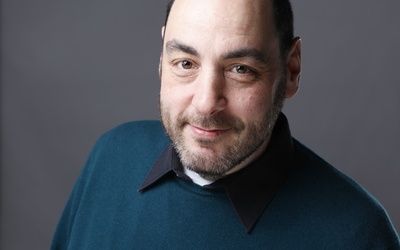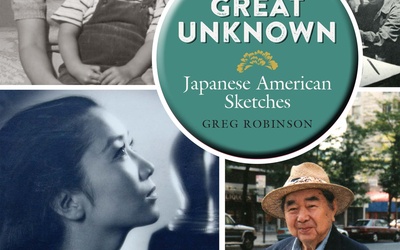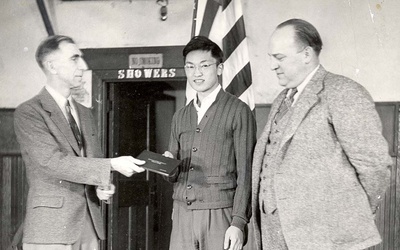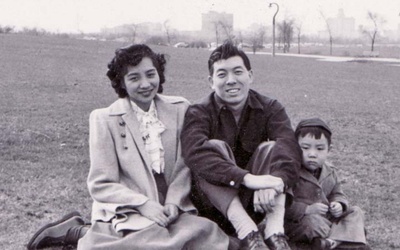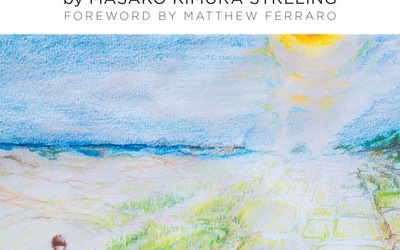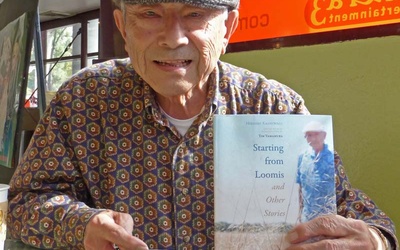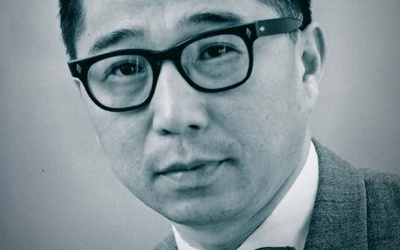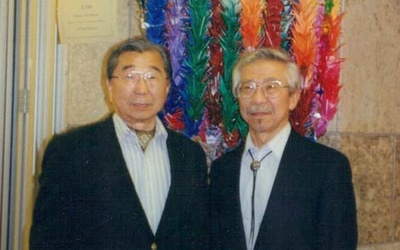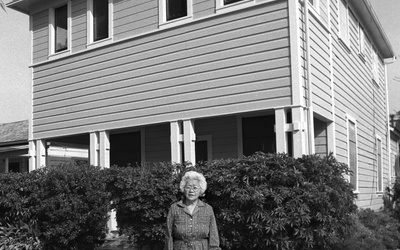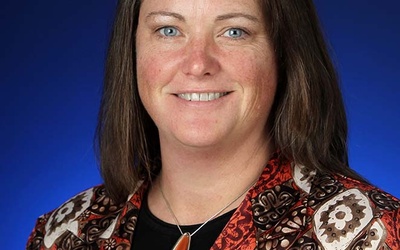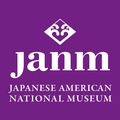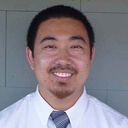
Edward Yoshida
Edward Yoshida is a husband, father, JANM/Discover Nikkei volunteer, and a project analyst at a regional engineering firm. He grew up in Los Angeles and Orange County before attending college back East. In his spare time, he enjoys exercising and spending quality time with his family.
Updated June 2015
Stories from This Author
Author Greg Robinson: Dishing Out Nikkei-related Historical Figures in One Irresistible, Bonbon-sized Serving after Another - Part 2
Feb. 18, 2017 • Edward Yoshida
Read Part 1 >> Sometimes, the research journey can create unexpected opportunities in the present day. After the author wrote his Nichi Bei column on the maverick African American attorney Hugh Macbeth regarding his valiant efforts in defense of Japanese Americans during WWII, the author published an extended study on Macbeth in his book titled, After Camp, which was a winner of the Caroline Bancroft History Prize in Western US History. That write-up gained traction, leading to a renewed interest …
Author Greg Robinson: Dishing Out Nikkei-related Historical Figures in One Irresistible, Bonbon-sized Serving after Another - Part 1
Feb. 17, 2017 • Edward Yoshida
The Great Unknown: Japanese American Sketches is the first-ever anthology volume of author Greg Robinson’s Nichi Bei Times and Nichi Bei Weekly columns as well as other selections taken from outside periodicals. Naturally, the majority of this anthology portrays individuals of Japanese ancestry: Issei feminist and peace activist Ayako Ishigaki, author Kathleen Tamagawa, pacifist militant Yoné Stafford, journalist and poet Eddie Shimano, writer and educator John Maki, journalists Buddy Uno and Bill Hosokawa, attorney Masuji Miyakawa, NFL player Arthur Matsu, …
Documentarian Greg Chaney: Honoring Juneau’s Japanese Community Unjustly Incarcerated during World War II
March 25, 2016 • Edward Yoshida
“There were no Japanese Americans left in Juneau at that time. It was a moment when this community came together in an act of quiet disobedience for the injustice of the internment.” —Juneau resident Mary Lou Spartz It was 1942. The valedictorian for the Juneau High School graduating class was affable John Tanaka, whose extracurricular activities included yearbook editorial board, honor society, science club, math club, photography club, and quill and scroll. Unfortunately for John, Executive Order 9066—which authorized the …
Documentarians Mary McDonald and Thomas Mazawa: A Neglected but Necessary Chapter About Strandees in the Japanese American Story
June 12, 2015 • Edward Yoshida
“The general term strandees, as applied to American citizens of Japanese ancestry, refers to those persons who had gone to Japan and who for various reasons had not returned to the United States before the outbreak of WWII.” —Frank F. Chuman, The Bamboo People Whether through one’s own parents or grandparents—or through media such as books or film—many …
Author Masako Kimura Streling: Beyond the Green Book
Dec. 18, 2014 • Edward Yoshida
“In the heart of every human being there is a quest for truth, a quest for justice, a quest for peace, a quest for love, a quest for mercy. In the heart of each one of us, we have this longing for something over and above our immediate reality.” For Masako Kimura Streling, this truth appears to have been a driving force throughout her life, even before she had fully realized it. Yes, Masako is the eldest daughter of a …
Author Hiroshi Kashiwagi: From Togan Soup to Plums Can Wait and Beyond, the Life of an American
Jan. 13, 2014 • Edward Yoshida
“Why was I, an American citizen, thrown in prison without cause, without due process? I had registered for the draft, as required of citizens of my age and sex in 1942; why were they questioning my loyalty now? How could they do that? … If they restored my status as a rightful citizen, let me go free, out of this prison, I would do anything required of me. Why should I answer the questions?” Regarding the loyalty questionnaire, or registration, …
Author Lane Hirabayashi: A Family Affair - Part 2
Sept. 13, 2013 • Edward Yoshida
Read Part 1 >>Perhaps the most important takeaway that we can apply to our own lives is how Gordon practiced what he preached. Combined with his Quaker membership and his early roots observing the honesty and integrity of his parents and other cooperative members, Gordon masterfully walked the fine line of not only being unapologetic for his beliefs, but also not being disrespectful of others who either did not share his beliefs or complied with the WWII orders and joined …
Author Lane Hirabayashi: A Family Affair - Part 1
Sept. 6, 2013 • Edward Yoshida
“Let me add, however, that in refusing to register, I am well aware of the excellent qualities of the army and government personnel connected with the prosecution of this exclusion order. They are men of the finest type, and I sincerely appreciate their sympathetic and honest efforts. Nor do I intend to cast any shadow upon the Japanese and the other Nisei who have registered for evacuation. They have faced tragedy admirably. I am objecting to the principle of this …
Author Mark H. Rawitsch: More Than Just a House
July 17, 2013 • Edward Yoshida
“I won’t sell. You can murder me, you can throw me into the sea, and I won’t sell.” Mr. Jukichi Harada’s sharp yet courageous response was unlikely to be the type of exchange he envisioned carrying on with his American neighbors when he left Japan permanently in 1903, never to see his parents, brother, or sisters again. For Issei, such as Mr. Harada, who were ineligible for U.S. citizenship, owning a building or land became that much more significant in …
Author Dr. Cherstin M. Lyon: Honoring Footsteps in the Sands of Time
June 14, 2012 • Edward Yoshida
Gordon Hirabayashi patiently sat in a jail cell as military officials discussed what to do with him. He had refused to register for relocation to Tule Lake, and yet the military could not allow him to stay in Seattle. Hirabayashi suggested that the military forcibly remove him to the regional assembly center so that the military would be in compliance with the exclusion order and he did not have to betray his conscience by obeying a racially discriminatory law that …

